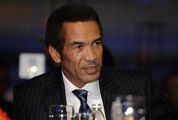IT SEEMS surreal that nearly 40 years after Soweto school children revolted against the imposition of Afrikaans as a medium of instruction in their schools, children today are still fighting a similar fight.
The Luister documentary that went viral on social media recently — part of a campaign to challenge Stellenbosch University’s language policy — showed how language can be a weapon of exclusion and of reinforcing patterns of privilege.
Between the Soweto uprising and the Open Stellenbosch movement, we have seen, after a hard and protracted struggle against apartheid, the dawn of a new democratic order, complete with the Most-Progressive-Constitution-In-The-World.
So what’s going on then?
Historically, the imposition of the coloniser’s language was a crucial part of subjugating the colonised. It is no coincidence that English is such a dominant language worldwide.
So for every post-colonial state, language has been a thorny issue. And SA is no different.
Other post-colonial states made different choices. Mozambique chose to adopt the coloniser’s language, on the thinking summed up by Samora Machel’s famous adage, "for the nation to live, the tribe must die".
Tanzania chose Swahili as its official language. The US chose not to have an official language.
We in SA embraced diversity — in theory at least. The Constitution says there are 11 official languages. It imposes on the state an obligation to "elevate the status and advance the use" of indigenous languages.
All official languages must enjoy "parity of esteem and must be treated equitably" (insert appropriate snarky comment here on the dismal failure by our state in this regard).
It is an issue long debated in the legal community — especially because language so critically affects the right to a fair trial.
Spend a little time in the magistrates’ courts and you will see what a difference it makes to the quality of justice when the magistrate can directly understand the accused or a witness; even with the best interpreters. But what happens when there are five different languages in one court? And what if the case goes on appeal and the appellate judge does not speak the language of the lower court? How will she read the record?
It is a vexed issue — a battle between practicality and principle.
And, when it comes to Afrikaans (and English, we should not forget), add to the equation that language can be a thin disguise for sheer racism. The stories I have heard — for example, of litigants choosing to litigate in Afrikaans so they can get a white judge. In our particular post-colonial state, Afrikaans sits in a strange position. While it is a minority language, it is still benefiting from years of the kind of "positive measures to elevate its status" the Constitution talks of in relation to our indigenous languages. It is disingenuous to treat Afrikaans as a marginalised language.
The framers of the Constitution seemed to be aware of language as a potential minefield.
Language is one of the grounds expressly listed in section 9 of the Constitution, which prohibits unfair discrimination. The Constitution protects the use of language and cultural rights — but not in a manner inconsistent with the other provisions in the Bill of Rights. Language cannot be an excuse for discrimination.
When it comes to education specifically, section 29(2) says "everyone has the right to receive education in the official language or languages of their choice in public educational institutions where that education is reasonably practicable".
This section has often understandably been used by those fighting to preserve Afrikaans as an available medium. But I don’t see why it cannot be equally used by those who, like the Open Stellenbosch movement, want classes available in both English and Afrikaans.
Deputy Chief Justice Dikgang Moseneke said in a judgment that the right in section 29(2) is "internally modified", because the choice is available only when it is "reasonably practicable".
What is reasonably practicable depends "on all the relevant circumstances of each particular case", he said.
This brings us back again to practicality and, as with the courts, the answers may not be easy. However in his Judicial Service Commission interview in 2010, Judge Selewe Mothle said something that has always stayed with me: when navigating this admittedly vexed topic, what should guide us is the interests of the litigants. Not the judges, not abstract principle and not the system.
I think that the same could be said in education. We need to listen to the students.
The name of their film was apt.
• Rabkin is law and constitution writer




















Change: -2.60%
Change: -2.88%
Change: -2.44%
Change: -2.44%
Change: -5.26%
Data supplied by Profile Data
Change: 0.00%
Change: 0.00%
Change: -2.60%
Change: 0.00%
Change: 0.00%
Data supplied by Profile Data
Change: 1.98%
Change: -0.06%
Change: -0.19%
Change: -0.09%
Change: 0.57%
Data supplied by Profile Data
Change: 0.00%
Change: 0.00%
Change: 0.00%
Change: 0.00%
Change: 0.00%
Data supplied by Profile Data